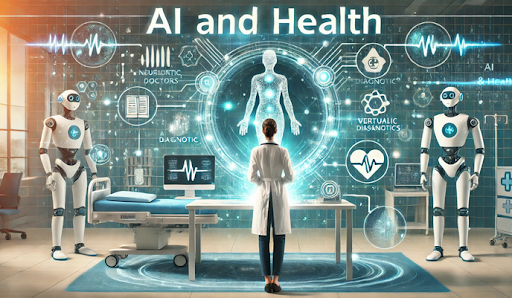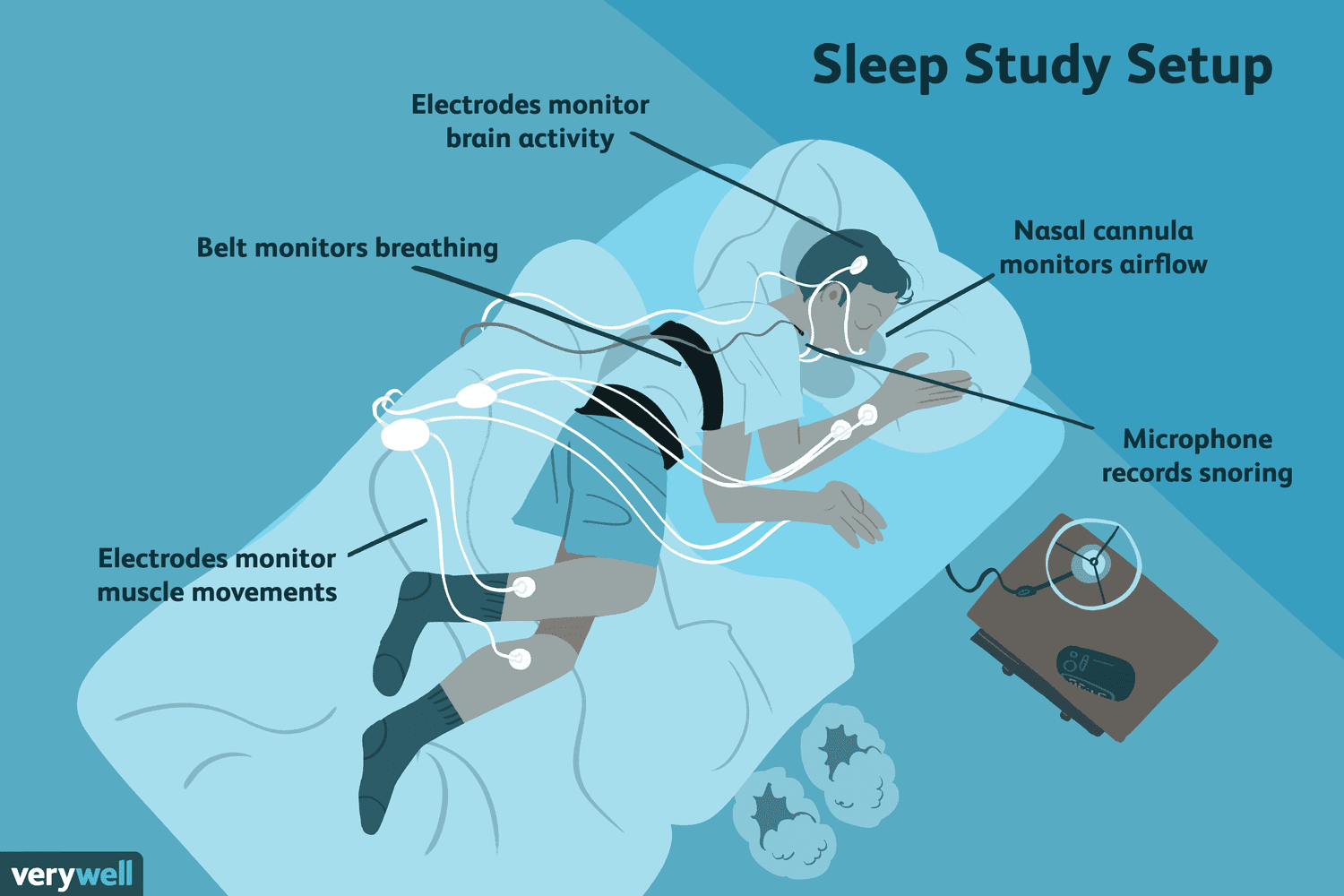
Sleep Study, Discover everything about sleep studies – what they are, how they work, types, costs, benefits, and what recent research reveals. Get expert FAQs and insights on sleep health.
🛌 1. Introduction: Why Sleep Studies Matter
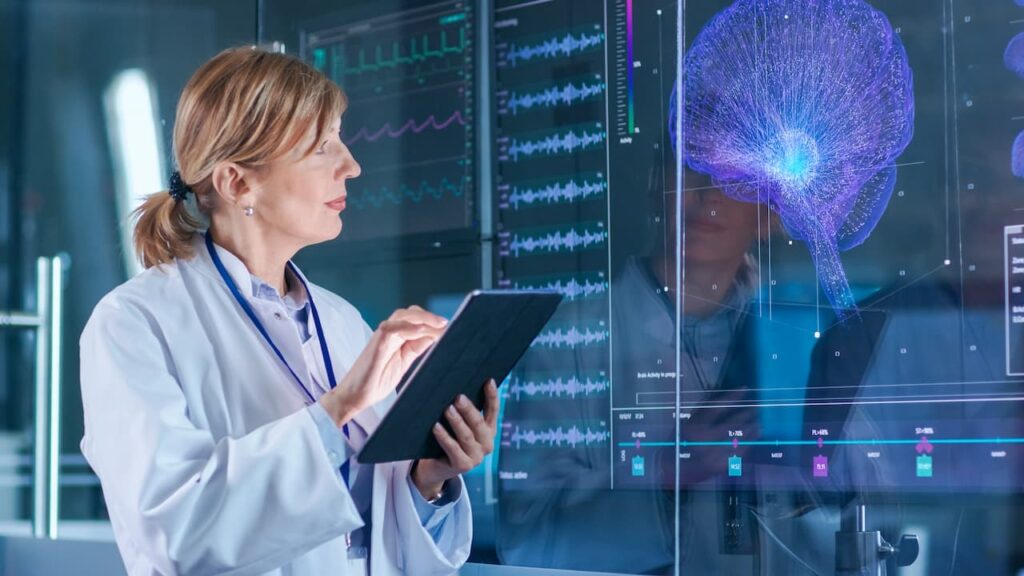
Sleep plays a crucial role in our physical and mental well-being. Yet, millions of people suffer from sleep disorders and don’t even realize it. That’s where sleep studies come in. These tests help diagnose what’s going wrong during sleep so doctors can treat issues like sleep apnea, insomnia, narcolepsy, restless leg syndrome, and more.
🧠 2. What Is a Sleep Study?
A sleep study—also called polysomnography—is a non-invasive test that records your body’s activity while you sleep. It monitors:
- Brain activity (EEG)
- Eye movement (EOG)
- Heart rate (ECG)
- Breathing patterns
- Blood oxygen levels
- Body movements
The goal is to detect any disruption in normal sleep cycles or any underlying medical condition.
🩺 3. Why Doctors Recommend Sleep Studies
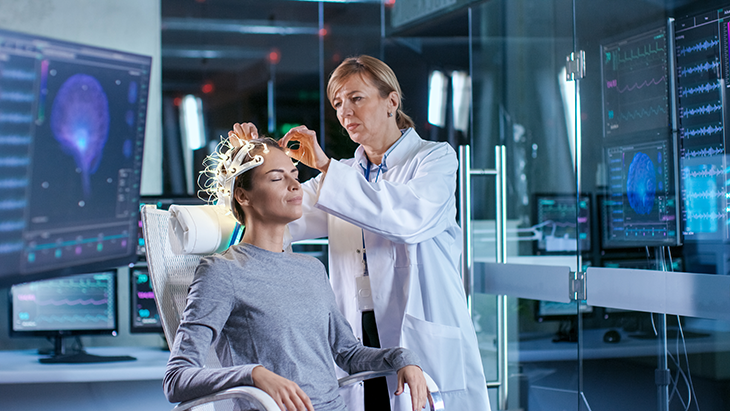
Doctors may recommend a sleep study if you experience:
- Loud snoring
- Daytime sleepiness or fatigue
- Insomnia
- Gasping or choking during sleep
- Irregular breathing patterns
- Sleepwalking or abnormal behavior in sleep
- Difficulty staying asleep
Sleep studies help diagnose and differentiate between types of sleep disorders, ensuring effective treatment.
🛏️ 4. How a Sleep Study Works: Step-by-Step
Here’s what to expect:
1. Preparation
You’re advised to avoid caffeine or alcohol and follow normal sleep schedules.
2. Arrival at Sleep Center
You arrive in the evening and are assigned a private room that mimics a hotel room.
3. Wiring Up
Technicians attach sensors to your head, chest, legs, and fingers using adhesive pads.
4. Monitoring
As you sleep, your brain waves, breathing, muscle tone, heart rate, and oxygen levels are recorded.
5. Analysis
Data is reviewed by a sleep specialist, and a diagnosis is made within 1–2 weeks.
📚 5. Types of Sleep Studies
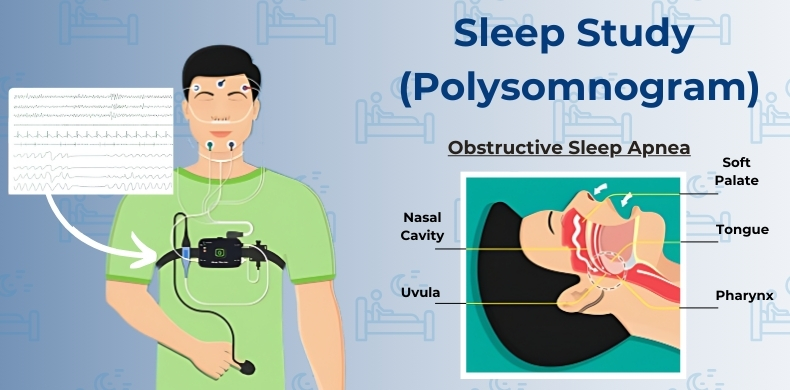
There are several types depending on symptoms:
| Type | Description | Used For |
|---|---|---|
| Polysomnography (PSG) | Full overnight lab study | Sleep apnea, narcolepsy |
| Home Sleep Apnea Test (HSAT) | Conducted at home with portable equipment | Mild/moderate sleep apnea |
| Multiple Sleep Latency Test (MSLT) | Measures how quickly you fall asleep during the day | Narcolepsy |
| Maintenance of Wakefulness Test (MWT) | Tests alertness in a quiet environment | Job/safety screenings |
| Actigraphy | Wrist device to monitor movements over time | Circadian rhythm disorders |
😴 6. Common Sleep Disorders Diagnosed
- Obstructive Sleep Apnea (OSA)
- Central Sleep Apnea
- Narcolepsy
- Insomnia
- REM Behavior Disorder
- Restless Leg Syndrome (RLS)
- Periodic Limb Movement Disorder
Early diagnosis improves treatment outcomes.
🔬 7. Latest Insights from 2025 Sleep Research
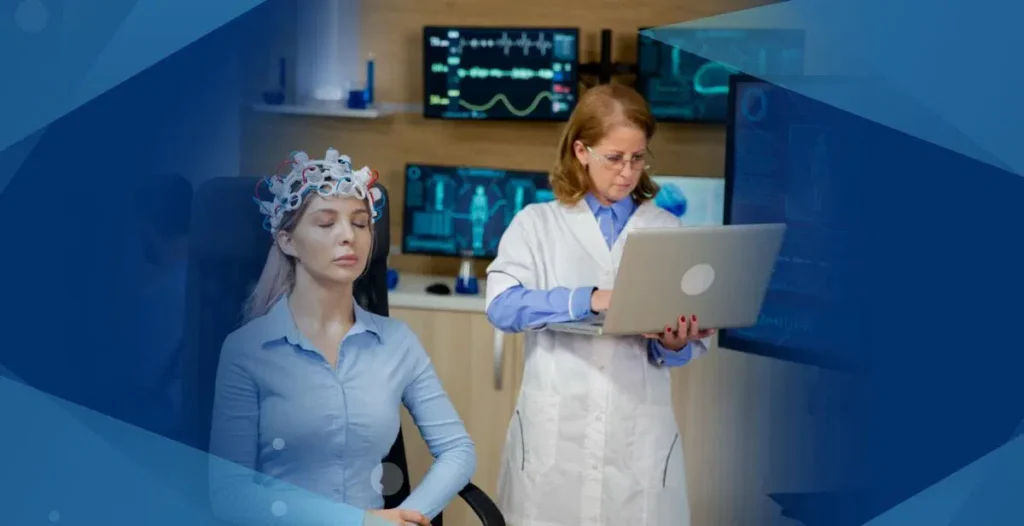
Recent studies published in 2025 have found:
- AI-assisted sleep scoring improves accuracy in diagnosis by 30%.
- Sleep apnea is now linked with early cognitive decline and heart disease.
- Blue light exposure continues to disrupt melatonin production and deep sleep.
- Women are underdiagnosed for sleep apnea due to different symptom presentation.
These findings make regular sleep assessment even more essential.
🧳 8. Preparing for a Sleep Study
- Avoid caffeine/alcohol 8 hours before
- Shower and don’t use oils/lotions
- Bring your own pillow or sleepwear if needed
- Take regular medications unless told otherwise
⚠️ 9. Risks & Limitations
- Uncomfortable wires may affect your sleep
- It’s just one night of data
- Not all disorders can be captured in one session
- May need a repeat test
Still, it remains the gold standard for diagnosis.
💰 10. Sleep Study Cost and Insurance Coverage
| Country | Average Cost | Insurance Coverage |
|---|---|---|
| USA | $1,000–$5,000 | Often covered (with referral) |
| UK | Free (NHS) or £300–£800 (Private) | NHS or private |
| Canada | Covered under provincial plans | Yes |
| Australia | $600–$1,200 | Partially covered |
| India | ₹5,000 – ₹15,000 | Mostly self-pay |
✅ 11. Benefits of a Sleep Study
- Accurate diagnosis of sleep conditions
- Custom treatment plans (CPAP, medication, etc.)
- Better quality of life and alertness
- Reduced long-term risk of heart problems or stroke
- Helps with mental clarity, memory, and mood
📊 12. Real-Life Results and Case Examples
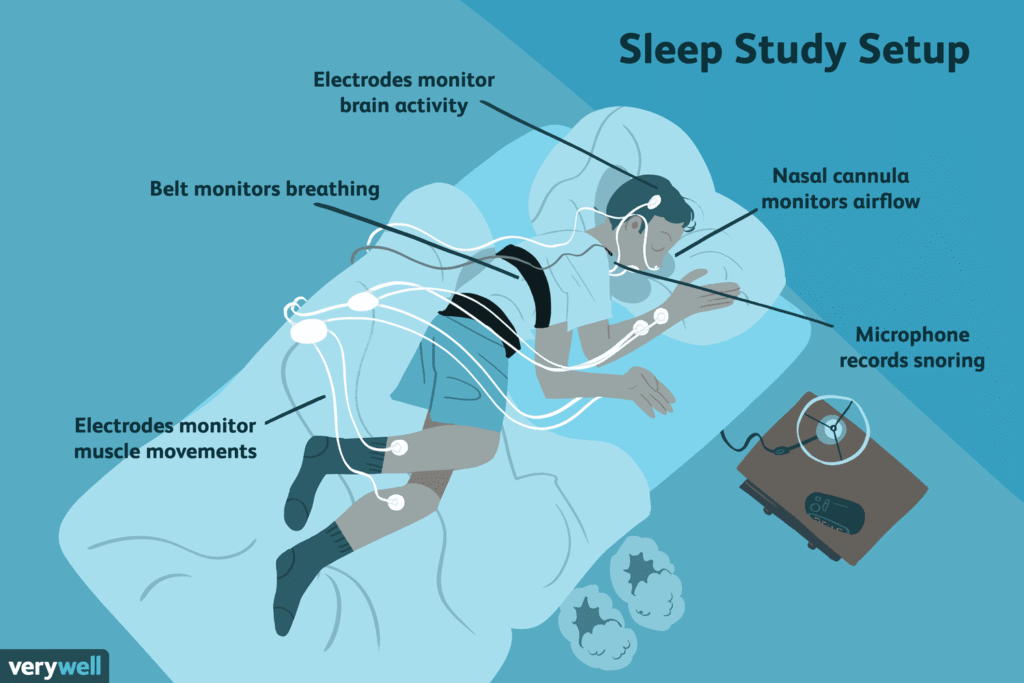
Case 1: John, 42 – USA
Diagnosed with severe OSA after years of fatigue. CPAP improved his energy within weeks.
Case 2: Priya, 28 – India
Complained of night terrors. Diagnosed with REM disorder and treated with medication and therapy.
🏥 13. Best Places to Get a Sleep Study
- USA: Mayo Clinic, Cleveland Clinic, Stanford Sleep Center
- UK: NHS Trust Hospitals, Spire Healthcare
- Canada: SleepWell Clinics, Ontario Sleep Center
- India: AIIMS, Manipal Hospitals
- Australia: Sleep WA, Melbourne Sleep Disorders Centre
🏠 14. Home Sleep Tests vs. Lab-Based Studies
| Factor | Home Test | Lab Study |
|---|---|---|
| Cost | Cheaper | More expensive |
| Comfort | Done at home | Clinical environment |
| Accuracy | Less detailed | More detailed |
| Disorders Detected | Limited | Comprehensive |
| Supervision | None | 24/7 technician |
👶 15. Sleep Study for Children and Seniors
Children may need sleep studies for:
- Night terrors
- ADHD misdiagnosis
- Sleepwalking
Seniors are often tested for: - Sleep apnea
- Cognitive sleep issues (e.g., Alzheimer’s-related disturbances)
Pediatric and geriatric setups are specially designed.
❓ 16. FAQs About Sleep Studies
Q1: Is a sleep study painful?
No, it’s non-invasive and painless.
Q2: How long does a sleep study last?
Typically from 10 PM to 6 AM.
Q3: Can I do a sleep study at home?
Yes, home tests are available for sleep apnea.
Q4: Is sleep study covered by insurance?
Often, yes – especially if ordered by a doctor.
Q5: What if I can’t fall asleep during the test?
Technicians still gather enough data from partial sleep to analyze.
Q6: Are there alternatives to sleep studies?
Basic sleep tracking apps exist but are not medical-grade.
Q7: What happens after the test?
You get results in 1–2 weeks, followed by a treatment plan.
🧾 17. Conclusion
A sleep study can transform your health, energy, and mental sharpness. It diagnoses what many people overlook: sleep problems that silently affect your life. Whether you’re in the U.S., India, UK, or elsewhere, getting tested could be the smartest decision you make for your long-term health in 2025.


